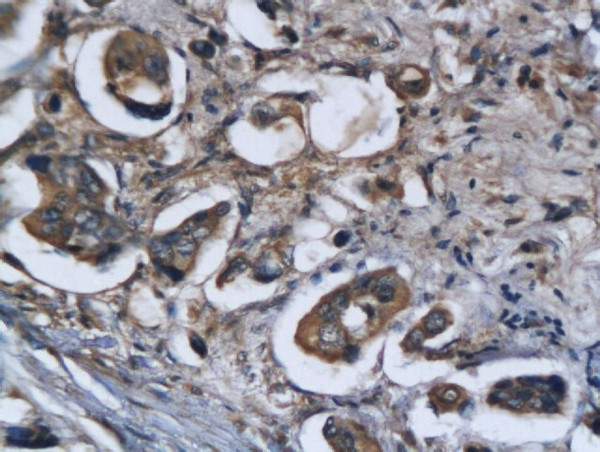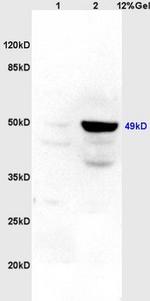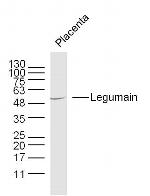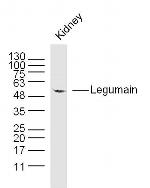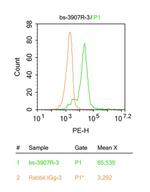Search Thermo Fisher Scientific
Product Details
BS-3907R
Species Reactivity
Host/Isotype
Class
Type
Immunogen
Conjugate
Form
Concentration
Purification
Storage buffer
Contains
Storage conditions
Shipping conditions
Target Information
This gene encodes a cysteine protease that has a strict specificity for hydrolysis of asparaginyl bonds. This enzyme may be involved in the processing of bacterial peptides and endogenous proteins for MHC class II presentation in the lysosomal/endosomal systems. Enzyme activation is triggered by acidic pH and appears to be autocatalytic. Protein expression occurs after monocytes differentiate into dendritic cells. A fully mature, active enzyme is produced following lipopolysaccharide expression in mature dendritic cells. Overexpression of this gene may be associated with the majority of solid tumor types. This gene has a pseudogene on chromosome 13. Several alternatively spliced transcript variants have been described, but the biological validity of only two has been determined.
For Research Use Only. Not for use in diagnostic procedures. Not for resale without express authorization.
References (0)
Bioinformatics
Protein Aliases: AEP; Asparaginyl endopeptidase; cysteine protease 1; Legumain; preprolegumain; Protease, cysteine 1; protease, cysteine, 1; protease, cysteine, 1 (legumain); PRSC1EC 3.4.22.34
Gene Aliases: AEP; AI746452; AU022324; LGMN; LGMN1; PRSC1
UniProt ID: (Human) Q99538, (Mouse) O89017, (Rat) Q9R0J8
Entrez Gene ID: (Human) 5641, (Mouse) 19141, (Rat) 63865

Performance Guarantee
If an Invitrogen™ antibody doesn't perform as described on our website or datasheet,we'll replace the product at no cost to you, or provide you with a credit for a future purchase.*
Learn more
We're here to help
Get expert recommendations for common problems or connect directly with an on staff expert for technical assistance related to applications, equipment and general product use.
Contact tech support
